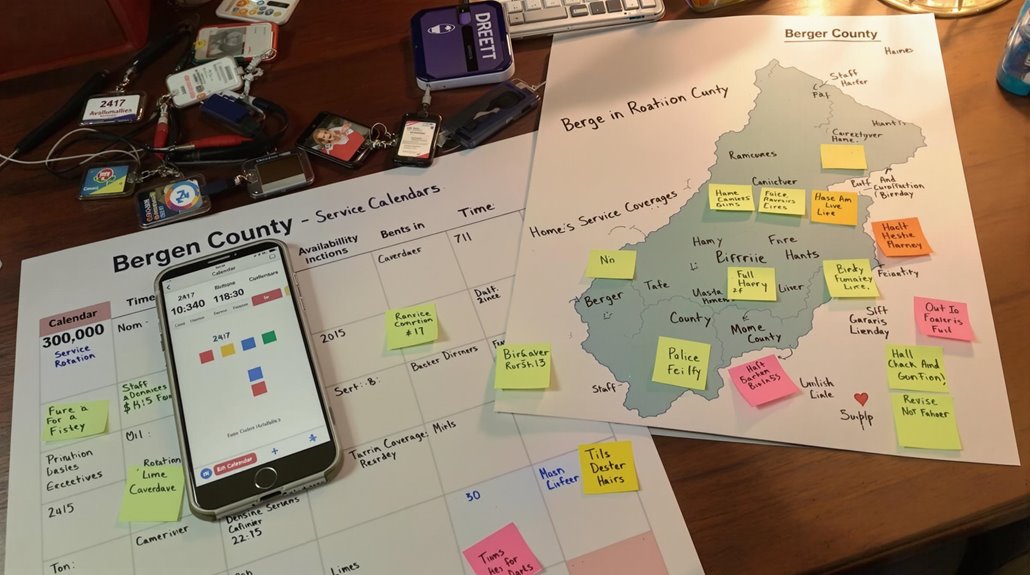Finding reliable home health care in Bergen County requires careful evaluation of potential agencies and awareness of common warning signs. This process involves examining essential factors such as licensing compliance, staff qualifications, and service quality indicators. Local families must navigate through numerous providers while considering their loved ones’ specific needs and circumstances. Understanding key vetting criteria can help distinguish reputable agencies from those that may compromise care quality.
Key Takeaways
- Verify the agency holds current New Jersey Department of Health certification and displays valid state licenses prominently in their office.
- Request documented proof of staff background checks, professional credentials, and ongoing training programs specific to home healthcare.
- Examine client reviews focusing on Bergen County service areas, ensuring consistent positive feedback about caregiver reliability and communication.
- Check for transparent billing practices with clear fee schedules and detailed explanations of Medicare/Medicaid coverage options.
- Look for warning signs like frequent staff turnover, delayed responses to inquiries, or reluctance to provide references from local healthcare providers.
Essential Licensing Requirements for Bergen County Agencies

Operating a home health agency in Bergen County requires adherence to five fundamental licensing requirements established by New Jersey state authorities.
The licensing process begins with obtaining state approval through the Department of Health, including a Certificate of Need (CON) for home health services. Agencies must complete DCA business registration, secure necessary insurance coverage, and conduct thorough criminal background checks for all staff members.
Regulatory compliance demands proper documentation of professional liability insurance, workers’ compensation, and fidelity bonds. Additionally, agencies must maintain valid state licenses, display registration numbers prominently, and guarantee all applications are submitted through approved online channels.
These requirements safeguard both clients and caregivers while upholding Bergen County’s commitment to quality healthcare services.
Staff Qualifications and Training Standards
Numerous essential qualifications and training standards govern home health agency staff members who serve Bergen County residents.
Licensed professionals, including registered nurses, physical therapists, and speech-language pathologists, must maintain active credentials and complete ongoing education requirements. Staff certifications vary by specialty, with home health aides completing state-approved training programs and competency evaluations.
Professional healthcare providers must meet rigorous certification standards and undergo continuous education to maintain their credentials and deliver quality care.
Medical social workers must hold Master’s degrees or work under qualified supervision, while therapy assistants require specific certifications and oversight.
The agency should maintain detailed documentation of all staff credentials, including degrees, licenses, and relevant work experience.
Annual competency evaluations and participation in training programs guarantee staff members stay current with clinical guidelines, regulatory standards, and patient safety protocols, ultimately delivering the highest quality care to Bergen County residents.
Key Background Check Protocols

When it comes to protecting vulnerable patients, thorough background check protocols form the cornerstone of home health agency safety measures in Bergen County.
Reputable agencies follow strict vetting criteria that include FBI fingerprint-based criminal history checks, particularly for staff working with minors or providing direct care. Background check procedures must be completed within 90 days before employment, with agencies bearing responsibility for all associated costs.
Certain offenses result in automatic disqualification, including violent felonies and criminal sexual conduct, while others carry time-limited employment bans. High-risk positions require enhanced screening and regular renewals, ensuring ongoing safety.
Agencies must also verify professional licenses, conduct drug testing for medication-handling roles, and maintain extensive records of all background checks through the Health Commerce System.
Legal Documentation and Compliance Verification
Legal documentation and compliance verification serve as the bedrock of legitimate home health agency operations in Bergen County. When evaluating potential agencies, clients should verify CMS certification through Medicare/Medicaid provider lists and confirm current state licensure with the NJ Department of Health.
Essential documentation accuracy includes properly maintained patient records, medication logs, and service reports that align with established care plans. Organizations must demonstrate legal compliance through valid accreditation from recognized bodies like JCAHO, while maintaining HIPAA-compliant record storage systems.
Professional credentials of supervising RNs and physicians should be current and verifiable. Additionally, service agreements must clearly outline scope-of-duties, payment terms, and liability safeguards that meet New Jersey’s elder care protocols, ensuring thorough protection for both patients and providers.
Patient Care Quality Indicators

Several key quality indicators help families assess the standard of care provided by home health agencies in Bergen County. Patient satisfaction metrics offer vital insights through standardized surveys covering provider communication, care quality, and willingness to recommend services.
Care coordination effectiveness is measured through successful changes between healthcare settings and timely follow-up appointments.
Additional quality benchmarks include pain management outcomes, wound care documentation, medication safety records, and infection control adherence. Agencies must also maintain detailed records of missed visits, length of stay patterns, and incident reports.
The Centers for Medicare & Medicaid Services publishes composite quality star ratings on Care Compare, enabling families to evaluate agencies based on nine standardized measures, including patient-centered care and functional improvement rates.
Agency Employment Policies and Practices
Quality patient care begins with robust employment policies and practices that home health agencies implement to maintain high standards of service delivery.
Leading agencies prioritize extensive staff training programs, rigorous certification standards, and detailed safety protocols that foster a positive agency culture. Regular competency assessments, continuing education requirements, and thorough background checks guarantee caregivers meet professional standards.
Comprehensive training and stringent certification standards ensure home health agencies deliver exceptional care while maintaining a positive workplace culture.
Successful employee retention stems from clear disciplinary frameworks, confidential reporting channels, and structured performance evaluations.
Agencies must demonstrate compliance with state-specific regulations, including Chapter 558 licensing standards and CMS certification requirements.
Quality assurance committees oversee these practices, monitoring everything from OSHA compliance to infection control protocols, creating an environment where both caregivers and patients can thrive.
Critical Red Flags to Watch For

When evaluating potential home health agencies, families must remain vigilant for warning signs that could indicate substandard care or questionable business practices.
Key red flags include frequent cancellations or no-shows, which suggest unreliable staffing practices and poor organizational management. Inadequate training of caregivers, especially in specialized medical equipment or pediatric care, poses significant risks to patient safety and well-being.
Other concerning indicators include incomplete documentation of care, unresponsive communication from agency staff, and unclear billing practices. Families should also watch for signs of poor hygiene standards, inconsistent infection control protocols, and high staff turnover rates.
Additionally, agencies that discourage family involvement or lack transparent emergency protocols warrant careful scrutiny before establishing a care relationship.
Client Reviews and Performance History
Thorough examination of client reviews and performance history provides essential insights into a home health agency’s quality of care and reliability.
When evaluating reviews, focus on detailed accounts of caregiver interactions, consistent staffing patterns, and specific examples of service excellence. High-performing agencies like Synergy HomeCare maintain strong client satisfaction records with substantial review volumes and consistently high ratings.
Look for testimonials that highlight caregivers’ qualifications, particularly their expertise in specialized care areas such as post-hospital recovery and therapy coordination.
Reviews mentioning prompt communication, flexible scheduling, and Medicare certification indicate extensive service capabilities. Agencies demonstrating consistent responsiveness to client needs and maintaining open feedback channels typically deliver superior care experiences, as evidenced by detailed positive reviews spanning both short-term and long-term care scenarios.
Service Coverage and Availability Assessment

Evaluating a home health agency’s service coverage and availability stands as a foundational step in determining its ability to meet specific care needs. When examining potential agencies, families should carefully review service eligibility requirements, particularly regarding skilled nursing care, therapy services, and home health aide support.
Understanding coverage limitations is essential, as Medicare typically covers only intermittent skilled care for homebound patients while excluding non-skilled personal care services.
Prospective clients should verify that the agency can provide face-to-face assessments, maintain proper physician oversight, and handle required documentation for certification and recertification every 60 days.
Additionally, inquire about the agency’s policies regarding continuous care authorization and their process for issuing Advanced Beneficiary Notices when services may not be covered by insurance.
Financial Transparency and Billing Practices
Understanding a home health agency’s financial transparency and billing practices serves as a critical safeguard for families seeking reliable care services. When evaluating agencies, look for those providing itemized statements, clear payment structures, and online billing portals that enable real-time tracking of expenses.
Reputable providers maintain thorough financial disclosures, including audited statements and detailed breakdowns of revenue sources. Quality agencies demonstrate billing transparency through straightforward fee schedules, explicit payment policies, and accommodation plans for uninsured patients.
They should readily share their gross and net patient revenues, operating costs, and charity care statistics. Avoid providers who display reluctance in sharing financial information, use confusing medical jargon in billing, or lack proper documentation of their revenue streams and expenses.
Bottom Line
Selecting a reputable home health agency in Bergen County requires careful evaluation of multiple factors, from licensing compliance to staff qualifications. By thoroughly examining an agency’s background checks, training protocols, and client feedback, families can identify reliable care providers while avoiding potential red flags. Maintaining vigilance throughout the vetting process helps guarantee loved ones receive quality care from trustworthy professionals who meet all necessary standards and regulations.
